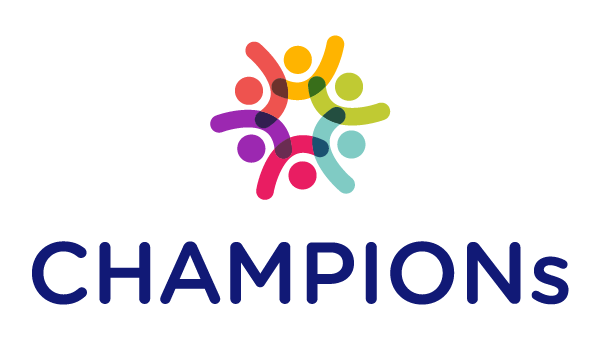 https://www.synyo.com/wp-content/uploads/SYNYO-NEWS-featured-image-NEW01007705EN.png
400
459
leo
https://www.synyo.com/wp-content/uploads/2017/09/synyo-logo.png
leo2025-01-01 10:47:112025-02-10 10:48:51BOND: Outcomes in Advancing Education, Tolerance and Heritage Preservation to combat Antisemitism
https://www.synyo.com/wp-content/uploads/SYNYO-NEWS-featured-image-NEW01007705EN.png
400
459
leo
https://www.synyo.com/wp-content/uploads/2017/09/synyo-logo.png
leo2025-01-01 10:47:112025-02-10 10:48:51BOND: Outcomes in Advancing Education, Tolerance and Heritage Preservation to combat AntisemitismCHAMPIONs

CHAMPIONs: Project Outcomes and the Way Forward
The CHAMPIONs project successfully created offline and online working groups to tackle radicalization and polarization in Germany, Hungary, Romania and Poland. Online modules that provide training materials and knowledge exchange for first-line practitioners will continue to support local stakeholders after the end of the project.
The CHAMPIONs project’s central goal was the creation of local offline and online working groups of first-line-practitioners (FLPs) of different disciplines, professions, and institutions or agencies, to jointly develop effective detection and response solutions to counter polarization and radicalization. To achieve this goal, CHAMPIONs implemented local roundtables in Germany, Romania, Hungary and Poland to assess and address the needs of local practitioners and developed online tools that support practitioners in their daily work.
The CHAMPIONs approach was based on the engagement of local stakeholders. Therefore, the project partners in Germany, Romania, Hungary and Poland implemented roundtables in local community settings. In the medium term, the goal was that FLPs’ actions not only affect vulnerable individuals, but also the wider community, including local and national policy-makers. Depending on the needs voiced by the FLPs, the project partners focused on specific issues or target groups:
In Hungary, the partners at BCMAP and POLCAP addressed housing issues and cohabitation in Budapest to counter hatred against the Roma population, and to solve conflicts between apartment owners, migrants and homeless people in the 8th district. In Poland the Institute for Society Safety (IBS) focused on capacity training of local governments in preventing violent extremism (PVE) and trust building in local communities in Warsaw to jointly work against anti-Semitic violence. CULTURES Interactive in Germany worked with youth groups to strengthen media competence and educated youth and teachers about online bullying. In Romania, activities implemented by PATRIR were focused on young offenders and rehabilitation of youth at risk, as well as on the prevention of crime and drug addiction. Roundtables were held in either an offline, online or hybrid format, depending on the local Covid-19 mitigation measures.
Based on the local stakeholder engagement, Champions developed three 3 online tools that will support the work of FLPs after the end of the project: Alert, Arena and the Training Yard, which have been incorporated into the Firstlinepractitioners.com Platform. The Alert modules allows practitioners to register a case of radicalisation or polarization and to engage a community of experts in Arena in providing recommendations for action. The Training Yard is a knowledge hub for practitioners that offers (local) information and training materials for first-line practitioners in 5 languages.
The online tools ensure the sustainability of the project and support the long-term aim of the project, which was to transfer the CHAMPIONs pilot model to other communities across the EU where other FLP Roundtables are established and FLPs become users of the developed platform. Synergies with related EU-funded projects, platforms and networks were harnessed throughout the project, to raise awareness about the CHAMPIONs outputs. These efforts culminated in the organization of the European Conference on Preventing Polarization and Violent Radicalization, which was organized in collaboration with 5 ISF-P funded projects (Rhizome Against Polarization, YoungRes, WayOut, Efus and ARMOUR), featured 6 panel discussions and 11 workshops. The conference organizers and speakers came from diverse professional and geographic backgrounds, including members and representatives of over 30 universities, institutions, organizations and agencies from 15 different EU countries The conference provided multiple opportunities for knowledge exchange and dissemination of project outputs, including the presentation and promotion of the online modules, Alert, Arena and the Training Yard. In this context, SYNYO presented the Training Yard in a dedicated workshop for FLPs. The European conference was attended by over 250 participants over 4 days (26th of April to 29th of April 2021) and provided the perfect platform for promoting the CHAMPIONs online solutions across Europe.
Project outputs
After 30 months, the project concluded with the following key achievements:
- Roundtables were implemented in Romania, Hungary, Germany and Poland which brought together local stakeholders to address local issues in radicalization and polarization.
- Three online modules (Alert, Arena and the Training Yard) were developed based on the needs of FLPs, which will serve as an information hub and platform for exchange for future collaboration.
- Awareness raising events in Hungary, Romania, Germany and Poland ensured that local FLPs are aware of the outputs of the projects and the resources developed in the CHAMPIONs project.
- European cooperation between key stakeholders in prevention and countering of violent extremism was kickstarted through the organizing of the European Conference on Preventing Polarization and Violent Radicalization. The conference which brought together the expertise developed in 6 ISFP-funded projects (Rhizome against Polarization, Champions, YoungRes, WayOut, Bridge and ARMOUR) presented the CHAMPIONs offline and online solutions to an audience of 250 participants.
The Way Forward
The CHAMPIONs project highlighted the need to engage diverse local stakeholders in developing targeted responses to radicalization and polarization that are fit for the local context and benefit local communities in a lasting manner. Furthermore, exchanges across national contexts allowed FLPs to become aware of similarities and differences in radicalization and polarization issues and how they are dealt with in different regions. The European exchange also demonstrated that there are many actors, locally and in Europe, who work hard to tackle polarization and radicalization.
The project facilitated cooperation between different local stakeholders in order to boost the resilience of communities to radicalization and polarization in an inclusive manner. It is the hope of the consortium, that the relationships that have been built among practitioners with different professional backgrounds during the CHAMPIONs roundtables will remain strong after the end of the project. The idea is that the modules Alert, Arena and the Training Yard, will ensure that FLPs can continue their collaboration in an online space. Furthermore, the consortium members intend to develop the tools in follow-up projects, to make them available to a wider audience and to refine the functionalities.
Links
https://www.championsproject.eu/
https://www.firstlinepractitioners.com/european-conference-2021/
https://www.firstlinepractitioners.com/alert/
https://www.firstlinepractitioners.com/arena-2/
https://www.firstlinepractitioners.com/training-yard/
Keywords
First-line practitioners, radicalization, polarization, local response, training, platform




